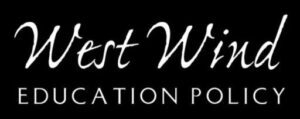Reading Time: 2 minutes
In 2005, the Iowa General Assembly created the Institute for Tomorrow’s Workforce (ITW). The ITW is charged with focusing elementary, secondary, and postsecondary education on what children need to know to be successful in Iowa’s global workforce. More specifically, the General Assembly asked the ITW to provide a “long term forum for bold, innovative recommendations to improve Iowa’s education system to meet the workforce needs of Iowa’s new economy.”
In 2006, the Iowa General Assembly passed legislation termed “Pay for Performance.” The legislation called for a pilot study of 10 school districts with pay-for-performance programs where teachers’ pay is based on student achievement, among other factors. An executive order by the governor contracted that work to the ITW. The legislation also directed the ITW to create an education efficiency and improvement plan for Iowa.
In order to inform the pilot study and improvement plan, the ITW contracted with Learning Point Associates (LPA) to conduct background studies. Under the contract, LPA will convene advisory work groups, conduct focus groups and a phone survey, meet with interest groups about their preliminary findings, and publish a final report by January 2007. LPA contracted with West Wind Education Policy, Inc. (West Wind) to conduct the focus groups. West Wind is a small company based in Iowa City, Iowa, providing policy analysis, professional development, and leadership training to district, state, and national leaders and advocates for public education.
Seven focus groups were conducted around the state, with 100 total participants. In September and October 2006, focus groups met in Muscatine, Oelwein, Fort Dodge, Sioux City, Council Bluffs, Centerville, and Des Moines. The focus groups were held in neutral locations in small towns and urban areas in order to gather a wide range of perspectives. Participants represented an array of interests, including educators, administrators, higher education, students, parents, community members and activists, business owners and managers, and senior citizens.
Questions were posed to each focus group to elicit the participants’ ideas, concerns, and priorities. Analysts at West Wind analyzed the results and prepared the following report for LPA and the ITW. An accompanying Technical Report is available with additional detail from each focus group session.
Back to Top
Library image (cc) Brooks Elliott

